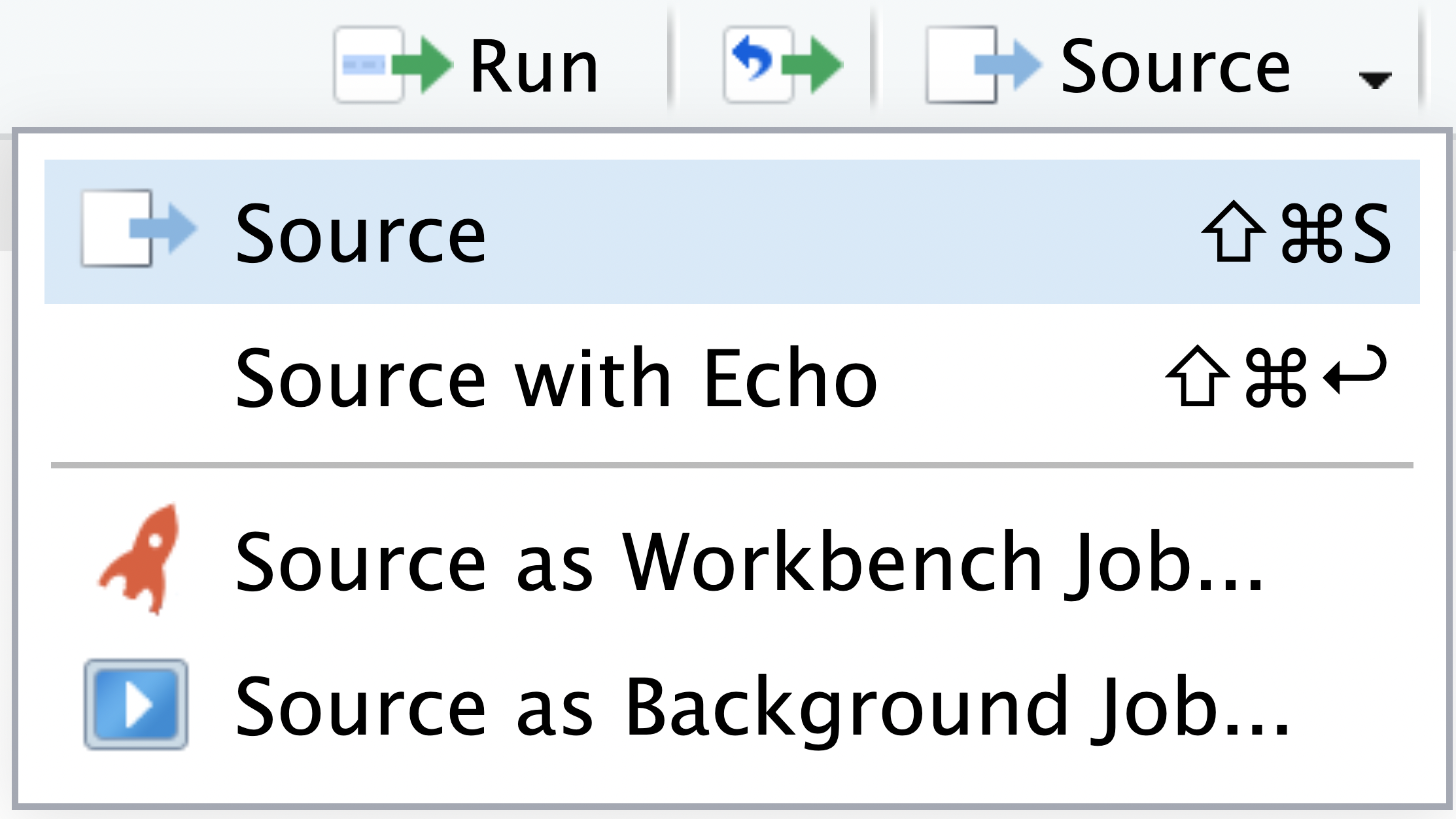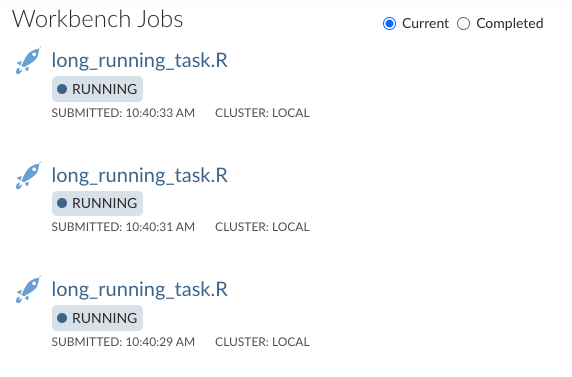Workbench Jobs
Workbench Jobs allows you to run R scripts in new sessions independent of your current RStudio Pro session. These jobs are helpful for executing long-running scripts such as training models or running multiple jobs simultaneously. Users can also run Background Jobs on RStudio Pro. However, Background Jobs run in the same RStudio Pro session, whereas Workbench Jobs run independently of RStudio Pro sessions.
The ability to run Workbench Jobs requires your server administrator to configure Job Launcher. Contact your server administrator to change these defaults and refer them to the Job Launcher section of the Administration Guide.
To start a Workbench Job, in an RStudio Pro session, select Source as Workbench Job…:

Depending on how your administrator has set up Posit Workbench, different options will be available when launching a job. Resource sizing and Docker image selection options will be available if Posit Workbench utilizes an external cluster such as Slurm or Kubernetes.

Monitoring Workbench Jobs
Once a Workbench Job is created, jobs can be monitored from the Workbench Jobs tab of any RStudio Pro session, which shows all of your jobs (not just those launched from the current session). You can safely quit your R session without affecting any currently running Workbench Jobs.

You can also monitor the status of running and completed Workbench Jobs on the Posit Workbench home page:
